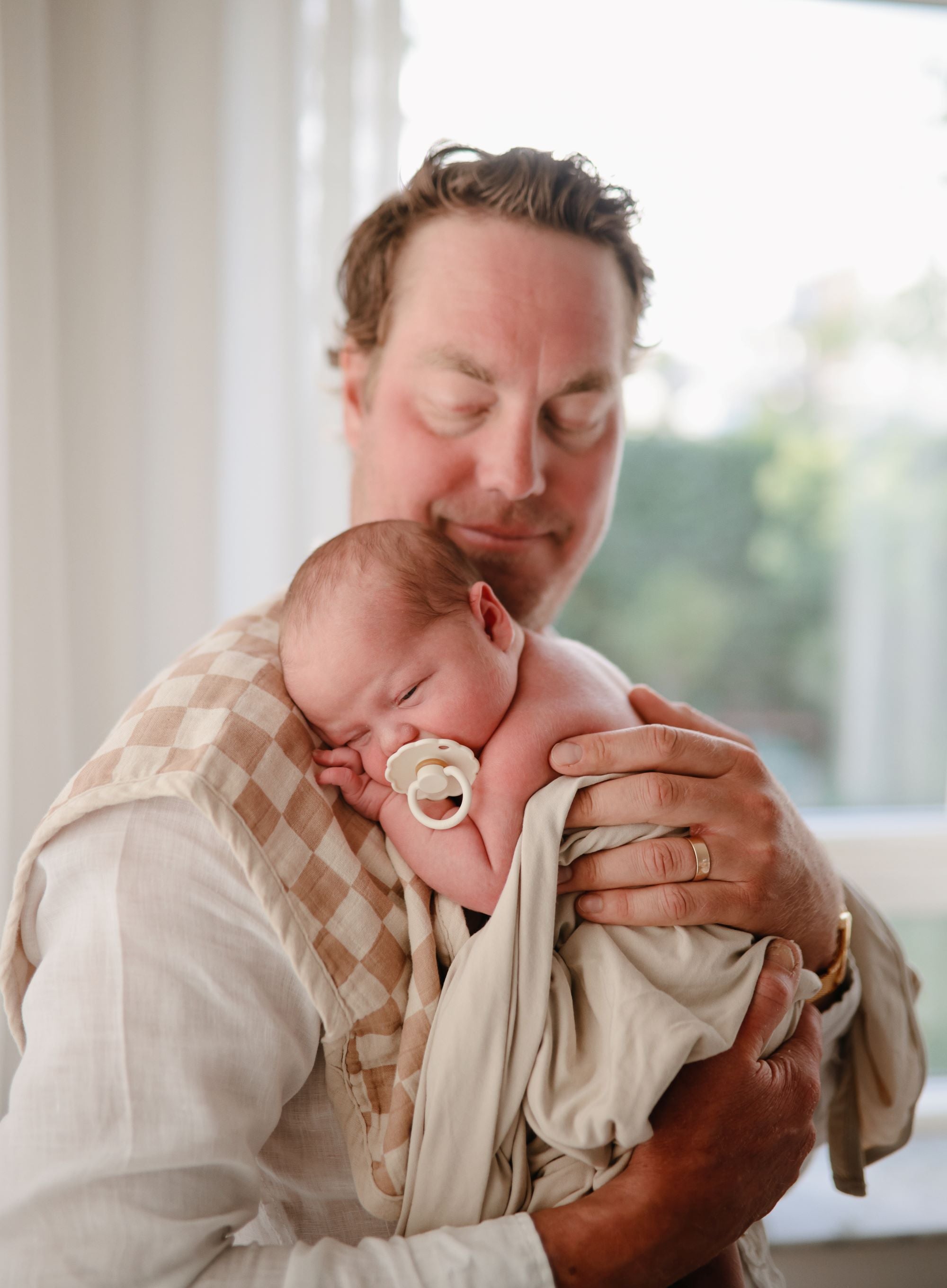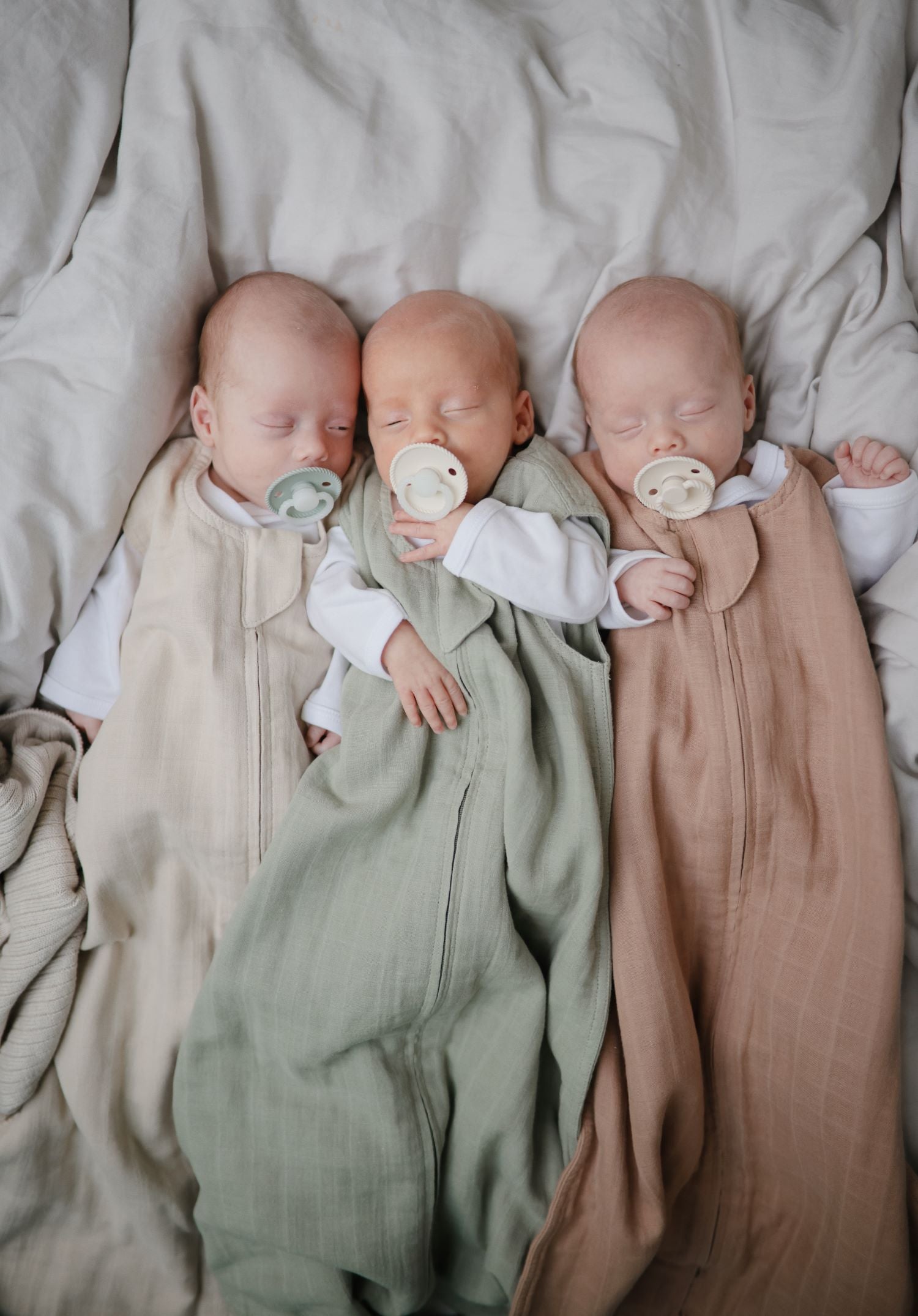Newborns need plenty of sleep to support their rapidly developing bodies and brains. However, getting your baby to sleep at a consistent time can be a challenge for many parents. One simple yet effective way to help your newborn develop a good sleep routine is to use light and darkness . Light and darkness give your body natural signals about when to be awake and when to rest, and this can be used to slowly regulate your baby’s sleep.
How Light and Darkness Affect Baby's Sleep
Human sleep habits are controlled by the body's internal clock known as the circadian rhythm . This rhythm tells the body when to wake up and sleep, influenced by exposure to light and darkness. When there is light, the body receives a signal that it is time to wake up, and when darkness falls, the body produces the hormone melatonin which tells the body that it is time to sleep.
Newborns don’t have a fully developed circadian rhythm, so they often wake up at night and sleep through the day. However, by exposing them to natural light during the day and darkness at night, parents can help their babies begin to recognize the difference between day and night, and slowly develop a more regular sleep routine.
Benefits of Darkness for Baby's Sleep
-
Helps Melatonin Production
Melatonin is a natural sleep hormone that the body produces when it is in darkness. When babies are in a dark environment, melatonin is produced, making them feel calmer and ready for sleep. -
Reducing Overstimulation
Babies are easily stimulated by bright lights, sounds, or movement around them. Darkness helps reduce these stimuli, creating a calm environment that promotes better sleep. -
Making Sleep Transitions Easier
By creating darkness in your baby's bedroom or sleeping area, you help your baby recognize that it is time for bed. This can make the transition to sleep easier as your baby begins to recognize patterns and signs that darkness means bedtime.
Benefits of Light for Baby's Sleep Habits
-
Building a Daytime Routine
Exposure to natural light during the day can help your newborn recognize that daytime is a time to be more awake and active. This can be done by letting sunlight into the room or taking your baby outside. -
Supports Energy and Activity During the Day
Bright light stimulates babies' bodies to stay active during the day, which can help reduce long naps and keep their energy up for bedtime at night. -
Helping Babies Differentiate Between Day and Night
Using natural light during the day and darkness at night can help your baby develop an early understanding of the difference between day and night. This is an important step in establishing a healthy circadian rhythm for your baby.
Practical Ways to Use Light and Darkness to Help Your Baby Sleep
-
Use Total Darkness When Sleeping at Night
Make your baby's room dark at night by using blackout curtains or window coverings. A dark environment can help your baby feel calmer and ready for sleep. -
Expose Natural Light in the Morning
Take your baby outside or let sunlight into their bedroom in the morning to accustom their body to light. Morning sunlight exposure is very helpful in establishing a natural sleep rhythm. -
Avoid Blue or Bright Light at Night
If you need to change diapers or feed your baby at night, use dim or warm-colored lights. Avoid blue light from electronic devices because it can interfere with melatonin production. -
Create Quiet Time Before Bedtime
Start a calming routine and dim the lights around bedtime. This will help your baby feel relaxed and ready for sleep more quickly. -
Use a Dim Night Light if Needed
If your baby feels more comfortable with a night light, choose a night light with a very soft light. Make sure the light does not disturb their sleep and is not too bright.
Helping your newborn develop a healthy sleep routine can start with using light and darkness. Natural light during the day and a dark environment at night will help your baby learn when it’s time to wake up and when it’s time to go to bed. This is a simple but effective first step in creating a more consistent sleep pattern for your baby and giving them a good foundation for healthy sleep habits.
Start with these small steps and create a comfortable environment for your baby. With time and consistency, you will see improvements in your baby's sleep routine, which will benefit the whole family.
































































































